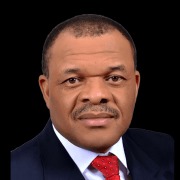What Turmoil in Ecowas Means for Nigeria and Regional Stability (4-9)

Nnamdi Obasi
Senior Adviser, Nigeria
Nigeria’s souring relations with Niger, with which it shares a more than 1,500km border and close economic ties, could have other implications as well. In 2022, trade between the two countries was about $226 million, according to International Trade Centre data. But since August 2023, this volume has shrunk significantly, following the closure of the border and suspension of flights between the two countries, due to both Abuja’s enforcement of the ECOWAS sanctions on Niger and Niamey’s reciprocal measures on self-defence grounds. The removal of sanctions notwithstanding, Niger’s exit from ECOWAS could prevent commerce between the two countries from fully bouncing back, as traders will now have to pay duties on imports, with adverse repercussions on livelihoods in the border states and beyond.
The deterioration of relations between Abuja and Niamey also jeopardises – and could eventually scuttle – two important projects: a 284km railway connecting the two countries’ second-largest cities (Kano in Nigeria and Maradi in Niger); and the ambitious 4,100km Trans-Saharan Gas Pipeline that could deliver as much as 30 billion cubic metres of Nigeria’s natural gas to Europe each year.
The bloc’s loss of three member states is a major disappointment for President Tinubu, who saw the crisis as both an opportunity to assert himself as a statesman and reinforce ECOWAS’s credentials as an enforcer of constitutional rule in the region.
On 9 July 2023, just before Niger’s coup, Tinubu became chair of ECOWAS at the organisation’s summit in Guinea-Bissau. In accepting the post, he pledged to put a premium on peace and security and promised a hard line against military seizures of power, declaring: “We will not allow coup after coup in West Africa again. … We must not sit in ECOWAS as toothless bulldogs”. Tinubu was a strong supporter of firm action to reverse the coup in Niger, asking the Nigerian parliament to approve a “military build-up and deployment of personnel for military intervention to enforce compliance of the military junta in Niger should they remain recalcitrant”. At the emergency meeting of ECOWAS heads of state in Abuja on 30 July 2023, Tinubu forcefully stated that “there’s no more time for us to send a warning signal. It’s time for action”. It seems clear, however, that circumstances compelled him to back down. Burkina Faso and Mali had pledged to defend Niger, raising the sobering spectre of war between ECOWAS states and the Sahelian alliance. Tinubu also faced unforeseen, but overwhelming domestic opposition to the idea of a foreign military operation.
The turmoil in ECOWAS, along with the rapid switch from confrontation to appeasement of the military rulers, have raised concerns among many Nigerians about Tinubu’s leadership of the bloc. His initial threat of military action against the Nigerien military authorities (widely seen as hasty and ill-advised); his imposition of crippling sanctions that boomeranged in northern Nigeria; his inability to reverse the coup in Niamey; and then his failure to avoid the split in the regional bloc not only highlight the bloc’s institutional limitations but also call his judgment into question.



